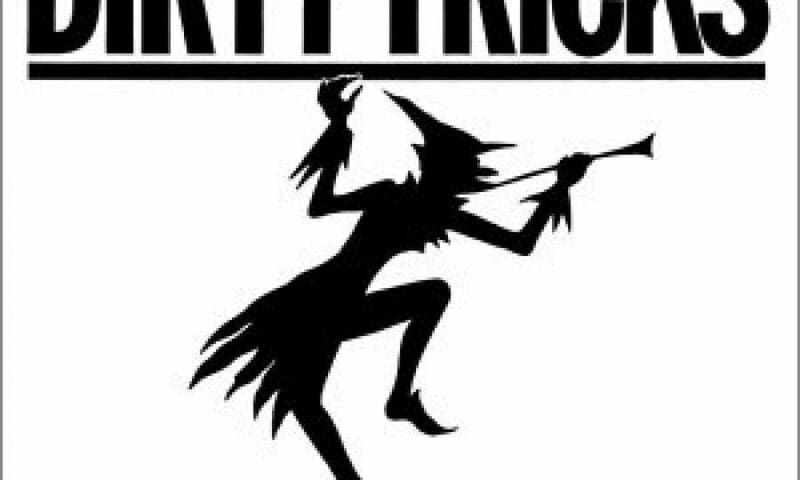
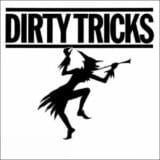
 To paraphrase Dostoyevsky on the subject of Gogol’s overcoat, All conservative pranksters have crawled out of Donald Segretti’s bag of dirty tricks.
To paraphrase Dostoyevsky on the subject of Gogol’s overcoat, All conservative pranksters have crawled out of Donald Segretti’s bag of dirty tricks.
Segretti, of course, was the Nixon operative who specialized in “ratfucking” – waging covert political warfare designed to embarrass Democrats running for office through forging inflammatory letters in their names and other deceits. Convicted as a Watergate conspirator, Segretti faded from history but his antics would be refined and expanded upon by Karl Rove and, later still, by James O’Keefe, who infamously showed up at ACORN offices impersonating a pimp in order to discredit the nonprofit group.
New York Times writer Michael Powell now presents an alarming overview of how contemporary ratfuckers have geared up to sabotage progressive organizations and political candidates. The piece revolves around John M. Howting, a young man who recently walked into the offices of a community action group,
» Read more about: WebHot: Political Dirty Tricksters Exposed »
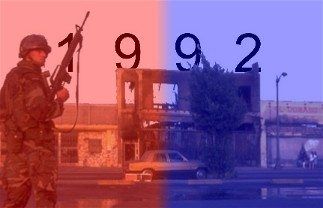
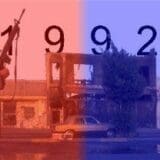
This month Frying Pan News is presenting personal stories of the April 29-May 4, 1992 explosion that has been called everything from a riot to a rebellion. These recollections do not represent the point of view of this blog or its sponsor, the Los Angeles Alliance for a New Economy. They do, however, present snapshots of a moment in a city’s troubled history — as well as opinions about how far we still need to go to make Los Angeles work.
Today’s post comes from Mike Davis, author of City of Quartz and Ecology of Fear. He teaches creative writing at U.C. Riverside.
A Tale of Two Riots
I was protesting at Parker Center when the Simi Valley verdict was announced. I spent the evening in South Central, talking to people and watching the fires.
» Read more about: 1992 Remembered: Mike Davis' Tale of Two Riots »
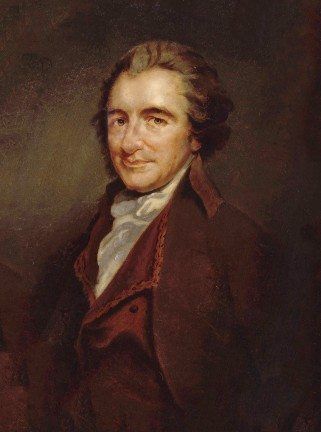

Last year I wrote a one-man play that I perform called To Begin the World Over Again: The Life of Thomas Paine. It’s about the one truly radical Founding Father whose greatest vision was for genuine equality. Paine called for an end to slavery, as well as for all men to vote, and suggested equal rights for women – all outrageous propositions for his time. Yet in the process of writing my play I discovered just how politically isolated we are from one another today. My Google Alerts for Paine have enlightened me as to many Web sites, events and points of view — particularly the YouTube videos of one Bob Basso. Until recently I had never heard of Mr. Basso. Neither had any of my friends or audience members from my show.
Basso has an interesting resume, however. He is a former flamboyant television show host in Hawai’i,
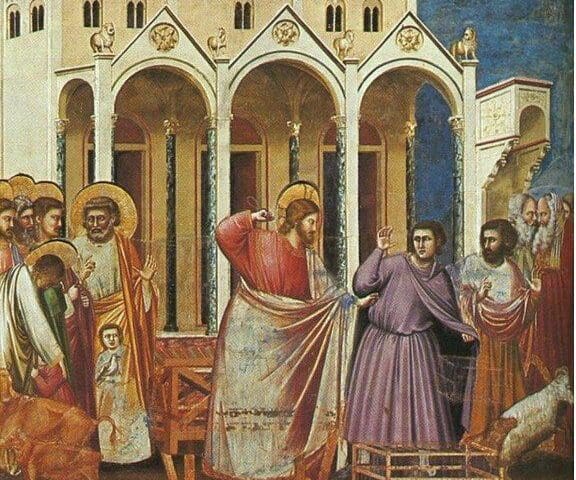
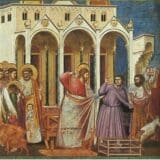
Walking back from the SEIU-SOULA* demonstration for immigrant rights at the downtown Federal Courthouse, I am wearing my clerical collar and carrying a CLUE-LA picket sign slung over my shoulder. Just across the 110 Freeway on Sixth Street, an older, tall, rather dapper looking white man passed me. Then about 10 paces on, he turns and asks: “What club are you with?”
“Clergy and Laity United for Economic Justice,” I say.
To which he he asks, “Isn’t there justice in this country?”
“If you’re part of the one percent,” I answer.
“Well, I am part of the one percent,” he says, “And I am not giving any of it to you!” Then he strode on at an increased gait.
“Give” I thought. Who said anything about “giving”? Apparently, he does not believe in giving one’s self to another for their nurture and for one’s own.


Twenty years ago Los Angeles exploded in a confusing nightmare of violence, triggered by the jury acquittal of four police officers accused of beating black motorist Rodney King. For the next month Frying Pan News will present personal stories of the incendiary events that have been called everything from a riot to a rebellion. Today’s post comes from Lovell Estell III, a longtime L.A. Weekly theater critic.
Hold the Flak Vest
I was in the fourth month of an internship at the Silver Lake-based L.A. Weekly on that day in April. There was a lead-dense atmosphere of tension in the building – but also an electric current of excitement. Earlier in the day, publisher Mike Sigman had asked me if I wouldn’t mind doing a bit of field reporting, after which he handed me a flak vest. I politely declined both the vest and his offer of potential journalistic immortality.
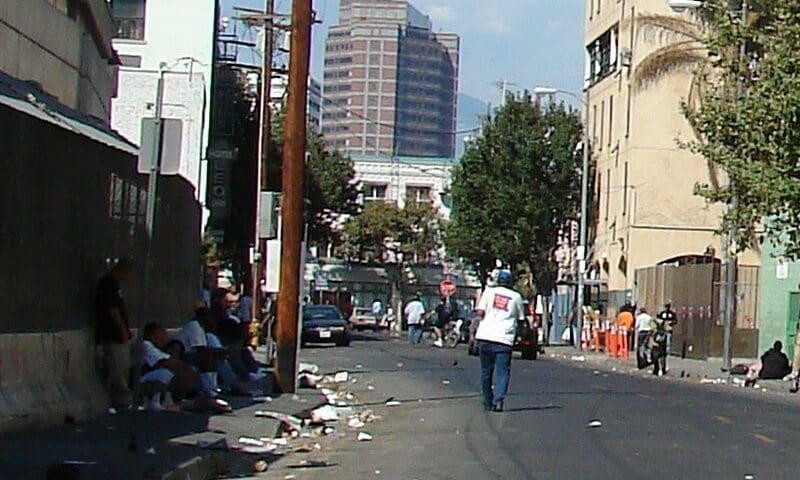
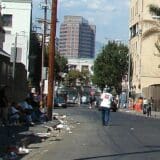
Next week the Los Angeles Alliance for a New Economy (LAANE) and a coalition of faith, labor, environmental and community organizations will hold a major action at L.A. City Hall, where they will release a plan for pulling the city onto a higher and healthier level of civic life.
PROSPER LA — the Program for Shared Prosperity and Environmental Renewal — looks at eight of the region’s core industries (energy efficiency, construction , grocery/retail, ports, tourism, waste and recycling, airline services and home care) that could be the source of a broadly shared economic recovery. The program offers both a positive vision for the future and a ready-made inventory of statistics that show both L.A.’s potential and its warning signs.
Among the facts contained in the PROSPER LA plan:
» Read more about: Sneak Peek: LAANE’s PROSPER LA Blueprint »
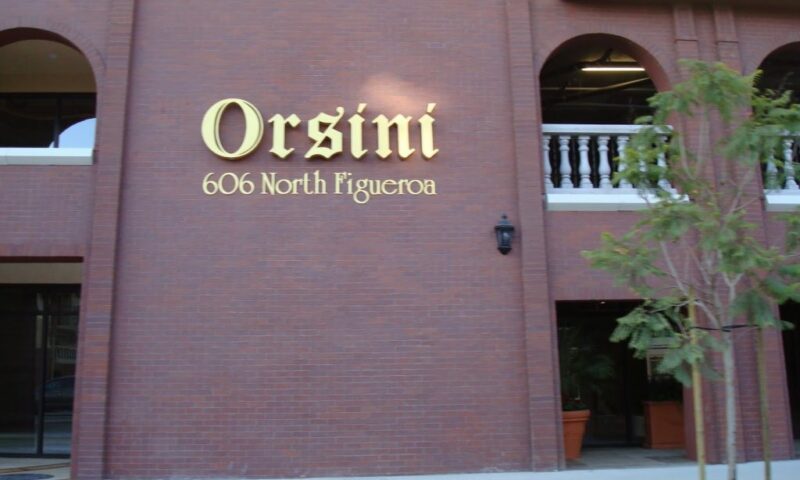
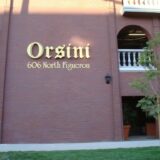
Every time I drive down Sunset Boulevard toward Chinatown, I get really mad. And it’s not only because Walmart wants to move into this neighborhood without extending the most basic community outreach. It’s because of those monstrous, faux-Italian Renaissance apartment buildings that take up blocks of space on what should be Chinatown’s Gateway. Those ugly looking bunkers house hundreds of market-rate apartment dwellers and are called Orsini I, II and III. They are owned by developer Geoffrey Palmer, and the story of how they were allowed to be built is a familiar one in Los Angeles.
A wealthy developer bought some land and wanted to build what he wanted to build. City officials were bullied into believing that there was nothing they could do about it. When Palmer managed to illegally bulldoze Bunker Hill’s last remaining Victorian cottage, the city sued. Palmer counter-sued.


It was quite a sucker punch Walmart landed against the community last week in the über-retailer’s fight to open a 33,000-square-foot store in L.A.’s Chinatown. The shot sneaked in, quick, low and hard–but ultimately didn’t end the match.
The scene last week: Los Angeles City Council chambers in City Hall, minutes before a unanimous March 23 vote on an emergency motion to temporarily ban chain stores (such as Walmart) from opening in the historic Chinatown neighborhood.
Suddenly, a startling announcement by a city bureaucrat—Walmart has obtained the permits needed to move forward in Chinatown—okayed only the day before the critical City Council vote.
The head of L.A.’s Department of Building and Safety himself, Robert R. “Bud” Ovrom, was there to deliver the news and further clarify the situation—namely, that the proposed ban would not interfere with the World’s Largest Retailer’s Chinatown plans.
» Read more about: Chinatown Fight's Still On: Groups Appeal Walmart Permits »


 Assemblymember Allan Mansoor (R-Costa Mesa), elected in 2010, has so far made a career out of demonizing workers and attacking workers’ rights. From collective bargaining to pensions, Mansoor never saw a cherished worker right he didn’t hate. Last year, he even took time to honor anti-union Midwest legislators, whom he calls “courageous” and with whom he stands “in solidarity.”
Assemblymember Allan Mansoor (R-Costa Mesa), elected in 2010, has so far made a career out of demonizing workers and attacking workers’ rights. From collective bargaining to pensions, Mansoor never saw a cherished worker right he didn’t hate. Last year, he even took time to honor anti-union Midwest legislators, whom he calls “courageous” and with whom he stands “in solidarity.”
It’s not surprising, then, that he’s become something of a shill for the campaign to silence workers’ political voice through this fall’s corporate power grab initiative. According to the Pacifica Institute, Mansoor vocally supports the measure, which proponents deceptively call the “Stop Special Interest Money Now Act,” arguing that it will limit “the influence of special interest money.” (Of course nothing could be further from the truth. It’s nothing other than a muzzle on workers that will make our system even more corrupt,